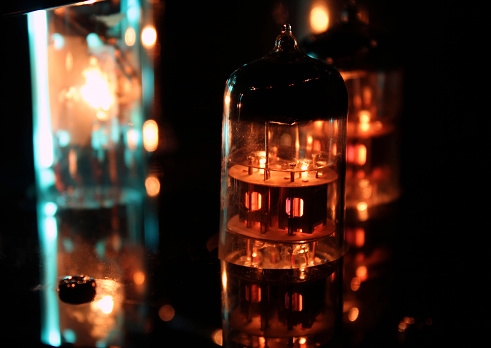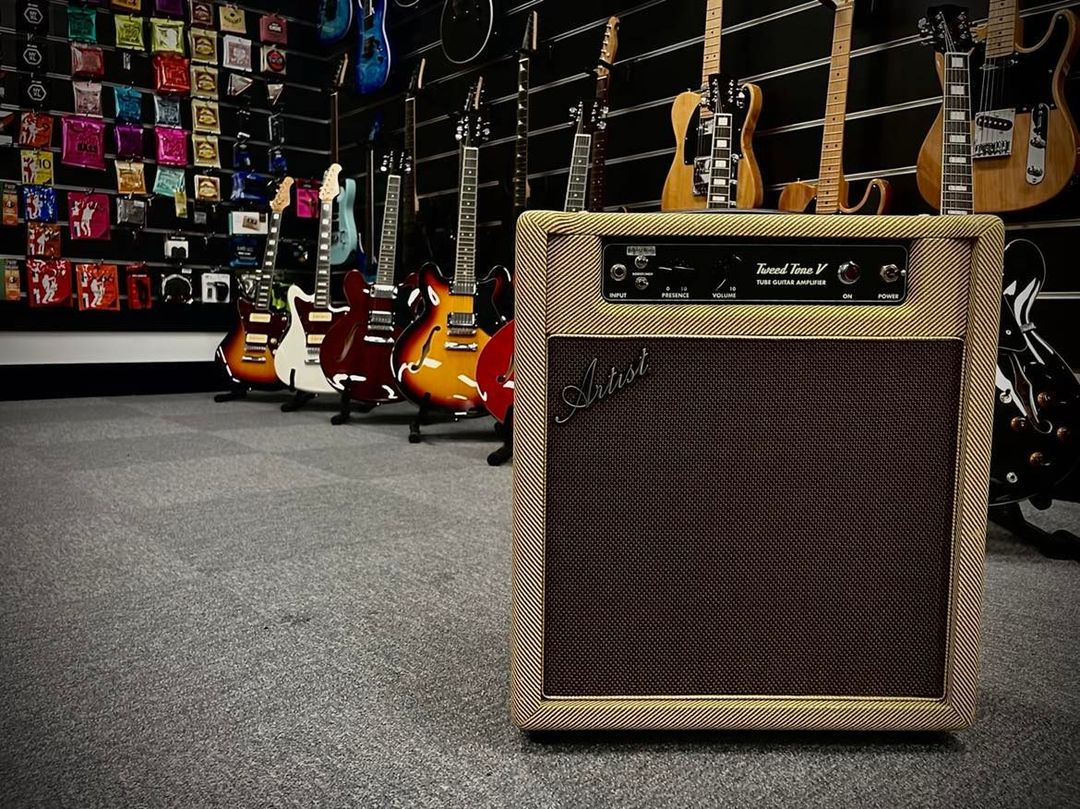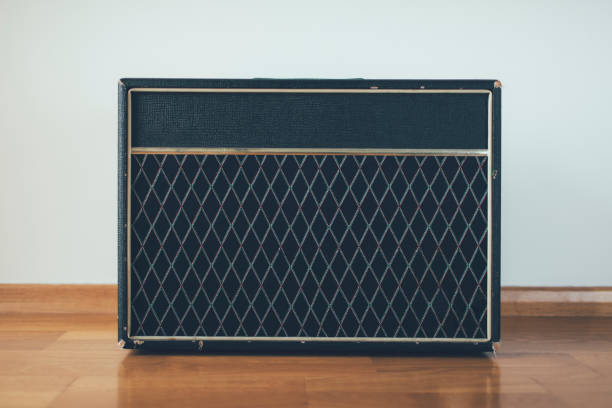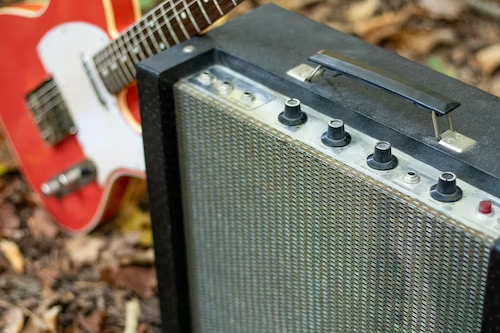What does “Amp Class” mean?
 We get this question frequently, and beyond a simple marketing term, the answer is quite straightforward and can actually tell you a lot about how an amplifier will behave.
We get this question frequently, and beyond a simple marketing term, the answer is quite straightforward and can actually tell you a lot about how an amplifier will behave.
Every guitar amplifier has two primary features; the preamp, where our dry guitar tone is coloured with gain and shaped by an EQ, and the power amp, which takes this low-level signal and boosts it to levels that can drive our speakers. When we talk about amplifier class we are generally referring to the latter, so in this blog we’ll be focusing on how the power amp side behaves in valve/tube amps.
To understand amp class, we can break the behaviour of a valve power amp into 3 simple characteristics: the conduction operation, which will become more clear later in this blog, the efficiency of the amp, and the resulting headroom and power achieved. For the purposes of simplicity, we will be discussing this in general terms, and won’t go too in-depth on the finer technical aspects of each amp class.
CLASS A
The power amp valves in a Class A amplifier will be working hard and conducting 100% of the time when the amp is switched on. Working the output valves this way actually makes them less efficient, so Class A amps are usually best for lower-power applications such as the classic Fender Champ, which has just one output valve. Amps like this and our TweedTone12 are known as “single-ended” amps, and as having just a single power amp valve means it must always be conducting, single-ended amps can only be Class A.
 The low efficiency of 100% conduction also gives Class A amps certain harmonic characteristics that sound great with a guitar, and means they can naturally distort at lower volumes, so they do not have much headroom, and they are known for a spongey attack when pushed, often associated with a cranked up vintage Vox AC30 or Fender Tweed amp.
The low efficiency of 100% conduction also gives Class A amps certain harmonic characteristics that sound great with a guitar, and means they can naturally distort at lower volumes, so they do not have much headroom, and they are known for a spongey attack when pushed, often associated with a cranked up vintage Vox AC30 or Fender Tweed amp.
- 100% conduction when switched on
- Low efficiency, best suited for lower-power amplifiers
- Lower headroom before signal compression
- This is most common in vintage and lower-output valve amps, and they get very hot as a byproduct of their inefficiency
CLASS B
Class B amps operate slightly differently in that they will use pairs of output valves working in unison, splitting the conduction 50/50 between the valves and allowing them to cool slightly between each conduction event. This basically means each one is working half as hard as the valves in a Class A amp, and as the valves effectively take it in turns to conduct these are often referred to as having “Push/Pull” operation. This makes Class B amps more efficient than Class A, and therefore they can generally put out higher power levels with more headroom, however, they will lose some of the musical-sounding harmonic qualities when pushed.
- “Push/Pull” conduction
- 50% conduction to each tube makes them more efficient, giving them higher output power
- Higher headroom before distortion but not very musical-sounding for guitar
- This is not a very common type of amplification for guitar
CLASS AB
 Class AB amps are probably the most common tube-amp type today and they operate as a mix of both Class A an B type amps. The conduction is split between output valves at a level pre-determined by the designer of the circuit, so we are able to achieve great harmonic results from an inefficient, hard-working tube, whilst still sharing the conduction to allow higher efficiency and offer more output power.
Class AB amps are probably the most common tube-amp type today and they operate as a mix of both Class A an B type amps. The conduction is split between output valves at a level pre-determined by the designer of the circuit, so we are able to achieve great harmonic results from an inefficient, hard-working tube, whilst still sharing the conduction to allow higher efficiency and offer more output power.
This makes Class AB amps very popular for loud, distorted amps, the perfect example being the Vox AC30, which manages to achieve huge volume and a rich distortion with harmonic overtones in Push/Pull, Class AB operation.
- Often operate as Class A until pushed, then the signal is split for “Push/Pull” conduction
- Achieves higher output power with very organic-sounding distortion
- Lower headroom than Class B, but this is utilised in the design to achieve harmonic distortion
Other Amp Classes
There are various other types of amplification classes (C, D, E, F, G, and H), but guitar tube amps can only operate in Class A, AB, or B. The other amp types are generally used for other applications such as Hi-Fi which require a much “cleaner” sound than even the cleanest, highest-headroom guitar amp, and this super-clean signal isn’t very favourable for guitarists; it will sound dry, lifeless, and lacking in the traditional harmonic characteristics of a guitar amplifier.
 These other amp classes will sometimes be utilised in modern solid state or hybrid amps, in particular Class D amplifiers, which work in a similar way to Class B amps but essentially use transistors (often MOSFETs) in place of valves. This makes them very efficient and sometimes very loud, and they can still produce somewhat similar tonal and harmonic characteristics to Class A and Class AB amps, without the wasted heat energy and whilst being very small in size.
These other amp classes will sometimes be utilised in modern solid state or hybrid amps, in particular Class D amplifiers, which work in a similar way to Class B amps but essentially use transistors (often MOSFETs) in place of valves. This makes them very efficient and sometimes very loud, and they can still produce somewhat similar tonal and harmonic characteristics to Class A and Class AB amps, without the wasted heat energy and whilst being very small in size.
It is important to note also that the most noticeable characteristics of your guitar tone will be shaped in the preamp and gain stages of your signal, but when it comes to designing and building, amp classes play a vital role in how the circuit will react to a signal, especially when it is pushed!
There is no right or wrong, and no amp class is better than any other, but they will produce different results and can be used for different applications.
We have kept this analysis very simple and you can consider this a rudimentary explanation, but hopefully this helps to dispel some myths and explain some marketing jargon so you can choose the right amp for you!